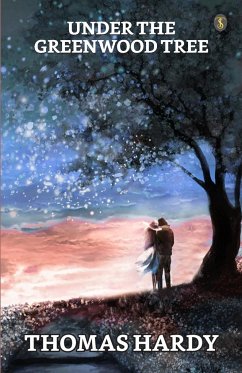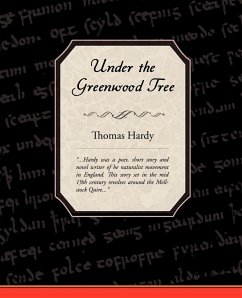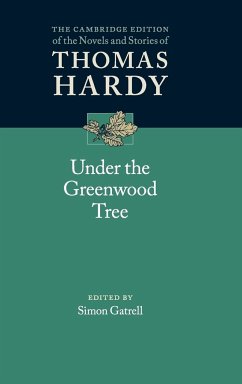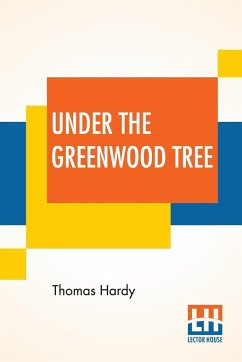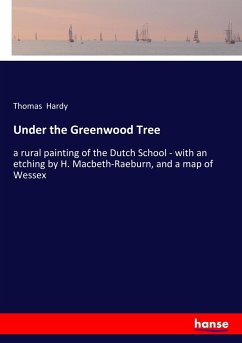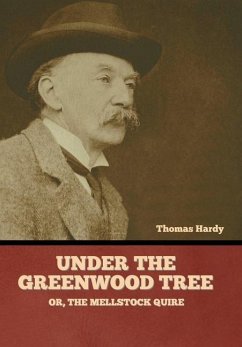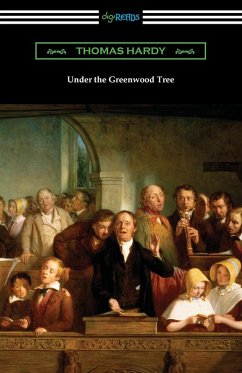
Under the Greenwood Tree
Versandkostenfrei!
Versandfertig in 1-2 Wochen
12,99 €
inkl. MwSt.

PAYBACK Punkte
6 °P sammeln!
First published anonymously in 1872, "Under the Greenwood Tree" is Thomas Hardy's story of the romantic entanglement between church musician, Dick Dewey, and the attractive new school mistress, Fancy Day. A pleasant romantic tale set in the Victorian era, "Under the Greenwood Tree" is the first of Hardy's "Wessex" novels and is one of his most gentle and pastoral stories. Dick falls in love with the beautiful and talented Fancy the moment he meets her and sets out to win her affection. Dick is not her only admirer however, and many men vie for the chance at Fancy's hand in marriage, including ...
First published anonymously in 1872, "Under the Greenwood Tree" is Thomas Hardy's story of the romantic entanglement between church musician, Dick Dewey, and the attractive new school mistress, Fancy Day. A pleasant romantic tale set in the Victorian era, "Under the Greenwood Tree" is the first of Hardy's "Wessex" novels and is one of his most gentle and pastoral stories. Dick falls in love with the beautiful and talented Fancy the moment he meets her and sets out to win her affection. Dick is not her only admirer however, and many men vie for the chance at Fancy's hand in marriage, including a rich farmer and the new parish church vicar. Dick and Fancy eventually become engaged, though they keep this happy news secret from her disapproving father. Endearing, richly detailed, and emotionally satisfying, Hardy's story captures the excitement and drama of young love and the simple charms of small-town life. Written early in his career, "Under the Greenwood Tree" shows Hardy coming into his formidable talent as an author and endures as one of his most uplifting and romantic tales. This edition is printed on premium acid-free paper.





